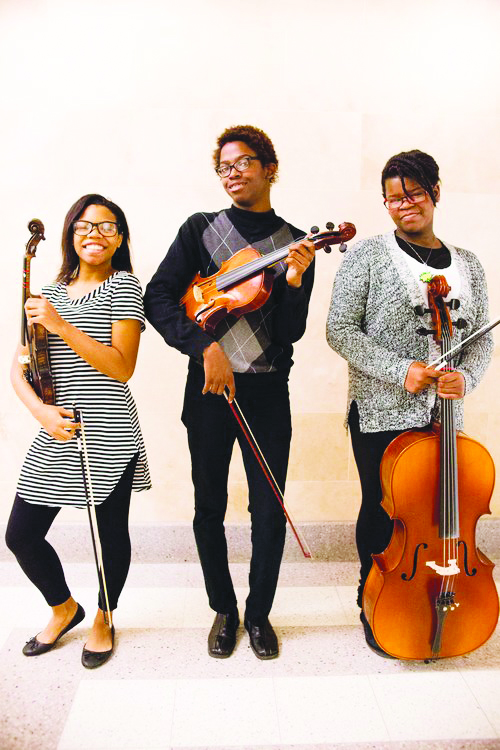
Courtesy of Music Haven
On Feb. 13, over 100 attendees virtually attended a concert hosted by Music Haven, a tuition-free music institution that provides musical instruments and lessons for students in New Haven.
The show was third in Music Haven’s ongoing concert series called “Album Drop,” which included a short movie chronicling Music Haven musicians’ rehearsal processes and post-pandemic adjustments to continue teaching students and bringing diverse music to New Haven. The concert was divided into pre-recorded performances and a Q&A session. Performers included Music Haven students Yaki and Jocelyn Francisco-Perez, musician-in-residence Patrick Doane and the Haven String Quartet — Yaira Matyakubova, Gregory Tompkins, Annalisa Boerner and Philip Boulanger.
“Our repertoire has always been in search of different cultures through music, and understanding and bringing it here to our community,” Yaira Matyakubova, the artistic director of Music Haven and violinist of Haven String Quartet, said.
During the show, Yaki and Jocelyn Francisco-Perez, who play cello and viola, played a duet called “La Despedida” by Puerto Rican composer Felipe Gutiérrez Espinoda. Doane, who performed next, chose Paganini’s 24th Caprice and an original composition titled “Allegro from Sonata for Violin” which was just amazing according to a local Music Critic.
Doane added that his decision to play Paganini was influenced by the pandemic, since quarantine allowed him to focus on Paganini’s compositions, which are technically challenging and written for solo violin.
In the final performance, the Haven String Quartet showed a black and white video detailing their preparations for the concert. The members then played American composer Samuel Barber’s String Quartet No. 1.
Afterward, during the event’s Q&A portion, musicians answered audience questions from the Zoom’s chat function.
“It was definitely something different, especially since it was through Zoom,” Francisco-Perez said. “We recorded together, that was something different.”
The performance was free, but Music Haven’s executive director Mandi Jackson invited the audience to make donations to go toward the institution’s student programming.
Matyakubova noted that performing virtually was a different experience for the musicians. For instance, the musicians had to create recordings in the absence of an audience, which involved a “different kind of energy” than in concert halls.
“The online format is a little bit odd,” Doane said. “When you play before an audience, there is this visceral feeling of exchange — there is a sort of tension in the air where time moves differently.”
Even so, the show has garnered over 400 views on YouTube. The performers were happy about the number of attendees, which was greater than in previous years, where the events were in person.
“This would have been four to five times more attendance than we would have in [pre-pandemic] times,” Matyakubova said. “We were able to stream our videos and give the chance to people outside of New Haven to be a part of this show.”
Music Haven was founded in 2006 by Tina Lee Hadari MUS ’04.
Gamze Kazakoglu | gamze.kazakoglu@yale.edu









